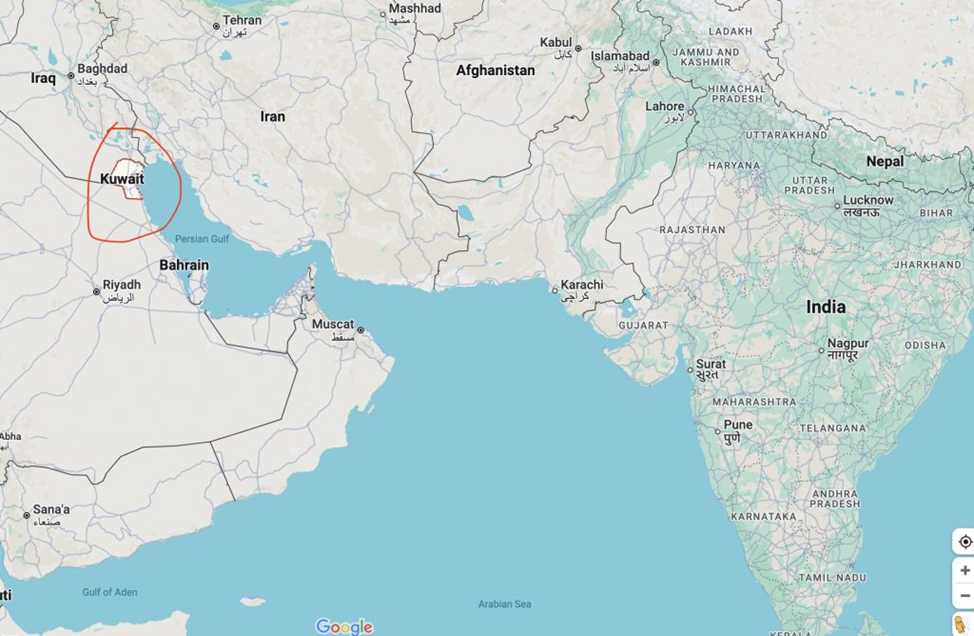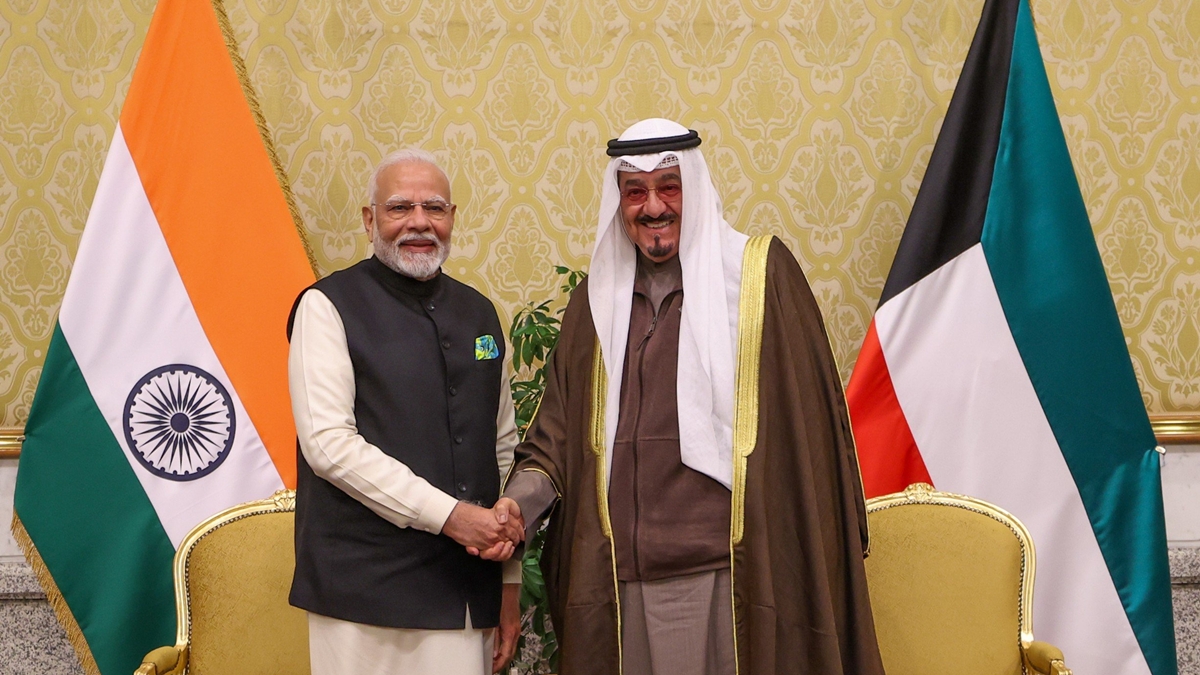Introduction:
In December 2024, Prime Minister Narendra Modi’s visit to Kuwait marked a historic moment in bilateral relations. This visit, the first by an Indian Prime Minister in 43 years, was a significant step towards strengthening India-Kuwait ties. During this visit, both countries agreed to elevate their relationship to a “Strategic Partnership,” a step that aims to enhance cooperation in key areas such as defense, trade, energy, investment, and cultural exchange. This renewed partnership reflects the growing importance of India in the Gulf region and highlights Kuwait's crucial role in India’s energy security.
Key Highlights of the Visit:
1. Strategic Partnership: Prime Minister Modi and Kuwait’s Amir, Sheikh Meshal Al-Ahmad Al-Jaber Al-Sabah, agreed to elevate the relationship to a Strategic Partnership. This partnership is designed to enhance cooperation across multiple sectors, including defense, trade, energy, investment, and cultural exchange.
2. Defense Cooperation: A major outcome of the visit was the signing of a Memorandum of Understanding (MoU) to enhance defense cooperation between the two nations. This MoU focuses on joint military exercises, coastal defense collaboration, maritime safety, training programs, and research cooperation, thus strengthening India-Kuwait defense ties and regional security.
3. Cooperation in Sports and Culture: In addition to defense, two significant MoUs were signed in the areas of sports and cultural exchange. The Executive Program for Cooperation in Sports (2025-2028) and the Cultural Exchange Programme (2025-2029) aim to promote people-to-people connections, particularly among the youth, fostering mutual understanding through sports and cultural activities.
4. Recognition of Modi’s Contribution: During the visit, Prime Minister Modi was conferred with Kuwait’s highest honor, The Order of Mubarak Al-Kabeer, by Sheikh Meshal Al-Ahmad Al-Sabah, in recognition of his efforts in strengthening bilateral ties between India and Kuwait. This prestigious award is given to foreign leaders who contribute significantly to the development of Kuwait’s international relations.
|
About The Order of Mubarak Al-Kabeer
|

India-Kuwait Relations: A Historical Overview
1. Political Relations: India was one of the first countries to establish diplomatic relations with Kuwait after its independence in 1961. Over the years, the two countries have built a strong political relationship, with the establishment of the Joint Commission on Cooperation (JCC) playing a pivotal role in advancing bilateral ties.
2. Energy Partnership: Kuwait plays a central role in India’s energy security. It is India’s sixth-largest supplier of crude oil and the fourth-largest supplier of liquefied petroleum gas (LPG). With around 6.5% of the world’s oil reserves, Kuwait is a key energy partner for India, ensuring a stable and reliable supply of energy resources.
3. Indian Community in Kuwait: The Indian community in Kuwait is an essential aspect of India-Kuwait relations, constituting approximately 21% of Kuwait’s population. Nearly 30% of the workforce in Kuwait is Indian, with Indian nationals contributing significantly to the country’s socio-economic development, especially in sectors such as construction, healthcare, and hospitality.
4. Trade Relations: Bilateral trade between India and Kuwait reached $10.47 billion in 2023-24, making Kuwait one of India’s top trading partners. The two nations have committed to expanding trade in sectors such as technology, agriculture, manufacturing, and pharmaceuticals, with growing interest in expanding cooperation in IT, fintech, and infrastructure.
5. Medical Cooperation: India and Kuwait have a long-standing partnership in healthcare. In 2012, the two countries signed an MoU to create a Joint Working Group to oversee medical cooperation. During the COVID-19 pandemic, Kuwait played a vital role by providing India with over 425 metric tons of liquid medical oxygen and other essential supplies.
Future Prospects: Strengthening Bilateral Ties
1. Trade and Investment Expansion: The conclusion of the India-Gulf Cooperation Council (GCC) Free Trade Agreement (FTA) is expected to boost trade relations further by facilitating the flow of goods and services between India and Kuwait. This agreement will help enhance business prospects, particularly in areas like technology, agriculture, and manufacturing.
2. Renewable Energy Collaboration: Both India and Kuwait have shown interest in expanding their renewable energy partnerships. With India’s expertise in solar energy and Kuwait’s focus on economic diversification, the two countries could collaborate on solar energy projects, contributing to global sustainability efforts.
3. Security and Defense Cooperation: Building on their defense MoU, India and Kuwait aim to strengthen their cooperation on regional security issues, including joint military exercises, coastal defense, and intelligence-sharing. This will help maintain peace and stability in the Gulf region and address shared security concerns.
4. UN Reforms and Global Governance: India and Kuwait have common interests in expanding the United Nations Security Council’s membership to reflect the current global order. Both countries will work together to advocate for reforms that will make the UN more representative and effective in addressing global challenges.
Conclusion:
Prime Minister Modi’s visit to Kuwait has brought India and Kuwait into a new era of strategic cooperation, with enhanced collaboration in defense, trade, renewable energy, and cultural exchange. The visit not only strengthened bilateral ties but also set the stage for future collaborations in various sectors. The awarding of The Order of Mubarak Al-Kabeer to Prime Minister Modi symbolizes the importance of this partnership and marks a new chapter in India-Kuwait relations. As both countries continue to deepen their engagement, they will play an increasingly crucial role in regional and global stability.
|
Main question: Evaluate the significance of the India-Kuwait Strategic Partnership in the context of India's foreign policy objectives in the Gulf region. |







